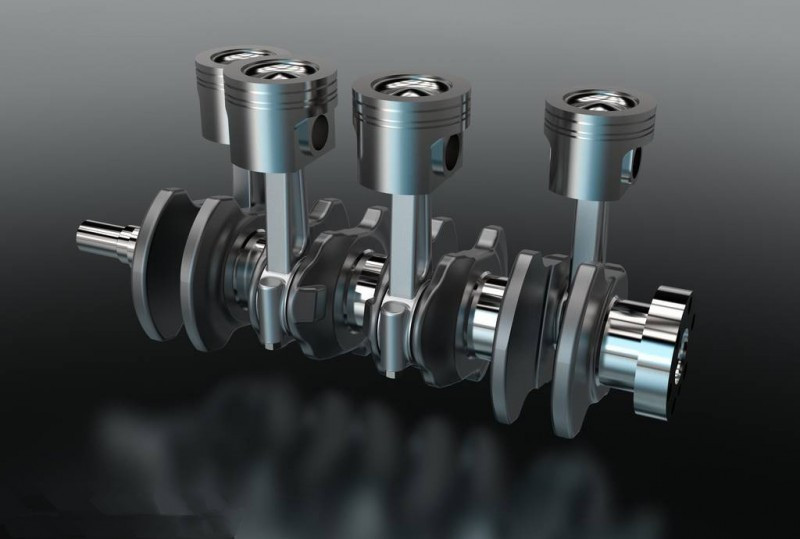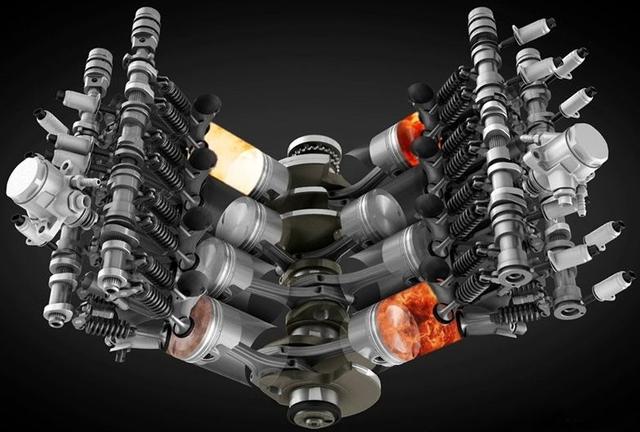The cylinder block of gasoline engine is divided into cast iron and cast aluminum. Compare the advantages and disadvantages of aluminum cylinder and cast iron cylinder:
1) Weight
The specific gravity of aluminum is smaller than that of cast iron, and the aluminum cylinder block is much lighter under the premise of meeting the strength requirements. The engine is light, which has a positive effect on the weight distribution of the vehicle, and the weight of the vehicle is also lighter. Therefore, at this point, aluminum cylinders dominate.
2) Volume
For the same reason, the specific gravity of aluminum is small, and the structural strength of aluminum per unit volume is less than that of cast iron, so aluminum cylinders are usually larger in volume. EA113/EA888's cylinder block has a center-to-cylinder distance of 88mm, while the existing version has a cylinder diameter up to 82.5mm. Except for the cooling water channel, the cylinder wall is actually quite thin. In this way, the entire engine is very compact and small in size. Aluminum cylinders are more difficult to achieve this effect. At this point, the cast iron cylinder block is dominant. [Supplement: The tensile strength of ductile cast iron can be more than 1000MPa, while the tensile strength of aviation 7075 aluminum alloy is 524MPa, the density of iron is 7.85, and the density of aluminum is 2.7. Therefore, in order to obtain the same strength, the volume of aluminum alloy needs to be increased by about one. Times, but the weight is about 40% lighter]
3) Corrosion resistance and strength
Aluminum is easy to chemically react with water produced during combustion, and its corrosion resistance is not as good as that of cast iron cylinder blocks, especially for supercharged engines with higher temperature and pressure. And the previous conclusion about the volume, on the other hand, when your engine volume requirements are relatively small, it is usually difficult to achieve the strength of the cast iron cylinder block with aluminum cylinder block. Therefore, many high-supercharged engines use cast iron blocks, such as (before the 9th generation) EVO's 286hp 2.0L I4 (4G63), which is always cast iron blocks. Its high modification limit is also well-known. If an aluminum cylinder is used, it may not be easy. At this point, the cast iron cylinder block is dominant.
4) Cost
The cost is naturally that the aluminum cylinder is more expensive, and there is nothing to explain. At this point, the cast iron cylinder block is dominant.
5) Explosion resistance and heat dissipation
Aluminum conducts heat faster, so it has good cooling performance, which can help the engine reduce the probability of abnormal combustion. At the same compression ratio, aluminum cylinder engines can use lower-grade gasoline than cast iron cylinder engines. At this point, the aluminum cylinder block is dominant.
6) Friction coefficient
In order to reduce the inertia of the reciprocating parts and increase the rotation speed and response speed, most of the pistons use aluminum alloy as the material. If the cylinder wall is also made of aluminum, the coefficient of friction between aluminum and aluminum is relatively large, which greatly affects the performance of the engine. Cast iron has no such problem. At this point, cast iron cylinder blocks dominate. [Supplement: some so-called "all-aluminum" engines also use cast iron cylinder liners]
in conclusion:
Advantages of aluminum: light weight, good heat dissipation;
Advantages of iron: cheap and durable. 
